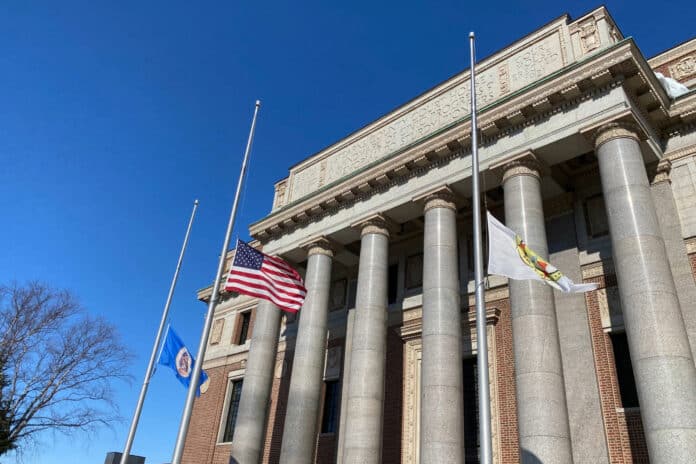The Stearns County Human Services Department recently required all of its employees to attend a training on how they are “all criminals.”
The training was mandatory, according to internal emails obtained by Alpha News, and employees who were unable to attend were provided a recording.
“This training is mandatory for all staff, however, if you are unable to attend the in-person training, we will have a recording available for later viewing. Nevertheless, I encourage you to attend in person as it is a very powerful training (and it’s always fun to connect with your co-workers about all of us being criminals)!” Human Services Administrator Melissa Huberty wrote in an email to staff in the department.
The Aug. 14 training was called “We Are All Criminals” and was put on by a nonprofit of the same name.
“We Are All Criminals (WAAC) is a non-profit organization dedicated to challenging society’s perceptions of what it means to be ‘criminal,'” the organization’s website states. “Through shared stories of those who committed or were accused of committing crimes, those who got away with them, and those who have been directly affected by the criminal justice system, we seek to erase the barriers that separate us.”
The training took place on a workday for two hours and was also the subject of “follow-up conversations and discussions” for “all teams and divisions,” according to Huberty’s email.
“We are all criminals, we just have not been caught” is one of the central messages of WAAC, according to the organization’s website, where it tells the stories of people who committed crimes but “got away with it.”
“[WAAC] is also a commentary on the disparate impact of our nation’s policies, policing, and prosecution: many of the participants benefited from belonging to a class and race that is not overrepresented in the criminal justice system. Permanent and public criminal records perpetuate inequities, precluding millions from countless opportunities to move on and move up. WAAC calls out the injustice in those policies,” the group’s website says.
The Stearns County training was, in part, presented by former public defender Emily Baxter, the group’s founder, who explains why she started the organization on its website.
“You see, criminal records create barriers to jobs, housing, education, and countless other opportunities to move on and move up, and not everyone in America is equally affected. Black men are more likely to be arrested, charged, convicted, incarcerated, and plagued by criminal records than their white counterparts. Black women and children, Indigenous People, Latinx, and people in poor communities are also profoundly and disproportionately devastated. For many, especially people of color, the crime becomes who they are, not what they did or were accused of doing; decision-makers use background checks as shortcuts for assessing character and worth,” she writes.
Baxter’s previous work includes serving as advocacy and public policy director at the Council on Crime and Justice in Minneapolis, “where she worked on successful Ban the Box and expungement expansion efforts.”
WAAC counts among its board members former DFL legislator Raymond Dehn and Mirella Ceja-Orozco, the co-executive director of the Minnesota Freedom Fund, a controversial organization that seeks to abolish cash bail and has a history of bailing out violent offenders.
The group also advocated for DFL-backed legislation to restore voting rights to felons when they are released from prison but before they complete their full sentence, including probation or parole.
Huberty defended the county’s decision to host the group in a statement to Alpha News.
“The ‘We Are Criminals’ training has been widely used at county professional associations in government over the past few years,” she said. “We work with people involved in the criminal justice system and strive to have a deeper understanding of the position of the other so that we can work effectively with people.”













